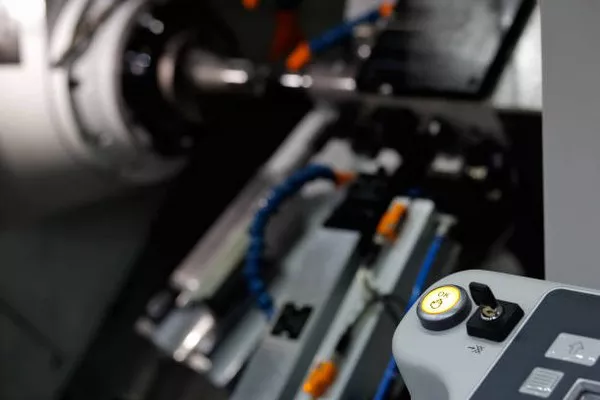Generators are essential tools for providing backup power during outages, and Generac is a prominent brand in this market. However, one crucial consideration for generator users is the weather conditions under which they can safely operate their units. A common question that arises is whether it is safe to run a Generac generator in the rain. In this article, we will explore this issue in detail, examining safety guidelines, potential risks, and best practices for operating your Generac generator in various weather conditions.
Understanding Generac Generators
Generac is known for its reliable and efficient generators, which come in various models designed for different needs, from portable units to whole-house systems. These generators are engineered to provide power during emergencies, whether due to storms, outages, or other unforeseen events. However, proper usage is critical to ensure safety and longevity.
The Risks of Operating a Generator in the Rain
Generators, including those manufactured by Generac, are generally designed to operate in various weather conditions, but running them in the rain presents several risks:
Electrical Shock Hazard: One of the primary concerns with operating a generator in wet conditions is the risk of electrical shock. Generators produce a significant amount of electricity, and when moisture comes into contact with electrical components, it can create a dangerous situation. Water and electricity do not mix well, and the risk of shock increases if the generator is not properly sheltered.
Corrosion: Moisture can lead to corrosion of the generator’s internal and external components. Over time, this corrosion can affect the performance of the generator and potentially cause long-term damage. Even though many Generac generators are built with weather-resistant materials, consistent exposure to rain can still have adverse effects.
Reduced Performance: Wet conditions can impact the efficiency and performance of your generator. Water intrusion can cause electrical components to malfunction or short circuit, leading to decreased reliability and potential failure during critical times.
Fire Hazard: Although it might seem counterintuitive, water and electricity combined can sometimes lead to a fire hazard. If the water causes a short circuit or damages the generator’s electrical systems, it could potentially lead to overheating and an increased risk of fire.
Manufacturer Recommendations
Generac, like other reputable generator manufacturers, provides guidelines on operating their generators in different conditions. According to Generac’s user manuals and safety recommendations:
Indoor Use: Generac generators are not designed for indoor use. They should be operated outdoors in well-ventilated areas to prevent the buildup of carbon monoxide and other harmful gases. Rain can pose a risk, but the primary concern indoors is ventilation.
Weather Protection: Generac recommends using a weatherproof cover or enclosure for portable generators if they need to be operated in adverse weather conditions. These covers are designed to protect the generator from rain and other environmental factors while allowing for ventilation.
Permanent Installations: For permanently installed standby generators, Generac designs these units to withstand various weather conditions, including rain. They are typically housed in protective enclosures that safeguard the generator from the elements. However, it is crucial to ensure that the enclosure is intact and properly maintained.
Best Practices for Operating Generators in the Rain
If you must run your Generac generator during rainy conditions, following best practices can help mitigate risks:
Use a Generator Cover: For portable generators, invest in a high-quality, weather-resistant cover. This cover should be designed to shield the generator from rain while allowing for proper ventilation. Ensure that the cover does not obstruct airflow or exhaust vents.
Elevate the Generator: Place the generator on an elevated platform to prevent water from accumulating around it. This can help reduce the risk of water ingress and protect the generator from puddles.
Ensure Proper Ventilation: Adequate ventilation is crucial for generator safety. Even when using a cover, ensure that there is enough airflow around the generator to prevent overheating and to allow the exhaust to disperse properly.
Regular Maintenance: Regular maintenance of your Generac generator is essential, especially if it is frequently exposed to adverse weather conditions. Inspect the generator for signs of corrosion, damage, or wear and address any issues promptly to maintain optimal performance.
Avoid Direct Exposure: If possible, position the generator under a shelter or canopy to shield it from direct exposure to rain. However, ensure that the shelter does not block ventilation or create a fire hazard.
Monitor Weather Conditions: Stay informed about weather conditions and plan accordingly. If heavy rain or severe weather is expected, it may be wise to delay using the generator or take additional precautions to protect it.
See Also The Cost of Standby Generators
Conclusion
Running a Generac generator in the rain is not inherently unsafe, but it does require careful consideration and adherence to safety guidelines. Understanding the risks associated with wet conditions and following best practices can help ensure that your generator operates safely and effectively.
Generac generators are built to be durable and reliable, but proper maintenance and cautious operation are key to maximizing their lifespan and performance. By taking appropriate measures to protect your generator from the elements, you can safeguard your equipment and ensure that it continues to provide essential power when you need it most.
For specific guidance related to your Generac model, always refer to the manufacturer’s user manual and consult with a professional if you have any concerns about operating your generator in adverse weather conditions.

